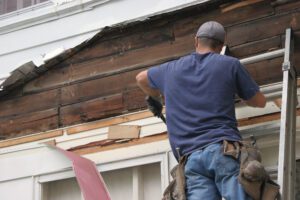 Owning rental properties can be rewarding, but it also comes with unexpected challenges. From plumbing emergencies to foundation issues, unforeseen repairs can quickly strain your finances. That’s why having a reserve fund isn’t just a good idea—it’s essential. Without proper financial preparation, you could find yourself scrambling for emergency loans or struggling to maintain your cash flow.
Owning rental properties can be rewarding, but it also comes with unexpected challenges. From plumbing emergencies to foundation issues, unforeseen repairs can quickly strain your finances. That’s why having a reserve fund isn’t just a good idea—it’s essential. Without proper financial preparation, you could find yourself scrambling for emergency loans or struggling to maintain your cash flow.
In this blog, we’ll explore why every landlord needs a reserve fund, how to determine the right amount, and how to build and maintain that fund over time. We’ll also provide insights into the role seasonal maintenance plays in your reserve fund planning and offer tips for long-term financial preparedness. With careful planning, you can safeguard your investment, avoid unnecessary stress when the unexpected happens, and adopt an asset management approach that ensures the long-term value of your property.
Why Every Landlord Needs a Reserve Fund
Unexpected repairs are an unavoidable part of rental property ownership. Whether it’s a burst pipe, roof damage from a storm, or a faulty HVAC system in the dead of winter, these emergencies can be costly. A reserve fund acts as a financial cushion, enabling you to address problems quickly without disrupting your overall budget or relying on high-interest emergency loans. (Learn more about reserve funds from Investopedia.)
Industry experts recommend saving 1-3 months’ rent per property to build a solid reserve fund. However, the amount can vary depending on several factors, including the property’s age, condition, and the type of rental unit (single-family homes vs. multi-family buildings). Having this safety net ensures that you remain financially stable even when repairs arise unexpectedly, aligning with an asset management approach that supports sustainable property growth and value preservation.
By planning ahead, you can maintain your property in good condition, protect tenant satisfaction, and avoid long vacancies caused by delays in addressing repairs. Working with a property management company ensures you’re prepared for emergencies. Their experience with similar properties helps them anticipate common repairs and guide you on appropriate reserve fund targets, giving you peace of mind.
How Much Should You Save for Emergencies?
There’s no one-size-fits-all answer to how much landlords should set aside for their reserve fund, as several factors influence the ideal amount.
- Age of the Property: Older buildings are more likely to require expensive repairs, such as roof replacements or plumbing upgrades.
- Condition of Key Systems: Properties with older HVAC systems or appliances may need frequent repairs, necessitating a larger reserve.
- Property Type and Location: Seasonal weather patterns and environmental conditions (e.g., heavy snowfall or frequent storms) may increase maintenance costs.
Seasonal maintenance should also be part of your reserve planning. HVAC maintenance, winterization, or gutter cleaning are recurring expenses that may not feel like emergencies but are essential to prevent bigger problems. For example, neglecting HVAC upkeep can lead to breakdowns at inopportune times, requiring expensive emergency service.
To determine the appropriate reserve fund size, property management companies can provide valuable insights based on their experience managing similar properties. They understand the nuances of different property types and regional maintenance needs, helping you avoid underfunding. For more information on estimating capital expenses on a rental property, check out this blog from BiggerPockets.
Building and Maintaining Your Reserve Fund
Building a reserve fund doesn’t have to be overwhelming. Start small by setting aside a fixed percentage of your rental income each month—this gradual approach allows you to accumulate savings without causing cash flow problems. For example, allocating 5-10% of monthly rental income is a reasonable way to build your reserve fund over time.
Once your fund is established, ongoing maintenance is crucial. Whenever you use the fund for repairs, be sure to replenish it promptly. Reviewing your reserve fund regularly and adjusting the target amount based on changes in property condition or financial needs ensures you’re always prepared.
A property management company can help you manage the reserve fund efficiently by prioritizing critical repairs and minimizing unnecessary expenses. Their expertise ensures your fund is used wisely, protecting your property and your finances.
The Role of Preventative Maintenance in Reducing Emergency Repairs
Preventative maintenance plays a key role in minimizing the need for emergency repairs, which reduces the burden on your reserve fund. Regular inspections and routine upkeep—such as checking for leaks, servicing HVAC systems, and inspecting roofs—can catch small problems before they become major expenses.
Creating a preventative maintenance schedule helps you stay on top of potential issues and reduces the risk of expensive surprises. Seasonal maintenance, like cleaning gutters in the fall or servicing air conditioning units in the spring, is especially important for maintaining the longevity of your property’s systems.
Many property management companies offer preventative maintenance programs, conducting regular inspections to identify and address issues before they escalate. This proactive approach not only protects your property but also ensures your reserve fund stays intact, reserved only for true emergencies.
Long-Term Planning for Capital Expenses and Unexpected Repairs
A reserve fund is essential for emergencies, but long-term planning for capital expenses ensures you’re prepared for larger, inevitable costs. Major upgrades, such as roof replacements, plumbing overhauls, or appliance upgrades, require more extensive financial planning. These types of expenses go beyond emergency repairs and should be anticipated years in advance.
Creating a capital improvement plan allows you to map out when major systems or components will likely need replacement. This strategy helps you distribute large expenses over time, reducing the risk of financial strain. For example, if you know the roof will need replacing in five years, you can gradually build a dedicated reserve for that specific expense.
Property management companies can assist with forecasting these long-term needs, using their knowledge of industry standards to help you plan for major upgrades. Their guidance ensures that your investments align with both your financial goals and the lifecycle of your property’s systems, preventing costly surprises.
Integrating Asset Management into Your Reserve Strategy
Planning for unexpected repairs is a crucial part of maintaining a rental property, but adopting an asset management mindset can elevate your financial strategy to the next level. This approach involves treating your rental property as a long-term investment asset rather than just a source of passive income. Here’s how an asset management perspective enhances your reserve strategy:
- Strategic Forecasting for Major Repairs
Asset management emphasizes strategic forecasting, where property owners evaluate the lifespan of major systems and plan ahead for their replacement or upgrade. This level of planning ensures that financial surprises are minimized, and funds are allocated efficiently. For example, by knowing when your HVAC system or roof will need significant repairs, you can budget gradually and strategically, preserving your primary reserve fund for true emergencies. - Optimizing Return on Investment (ROI)
Maintaining a reserve fund is not just about being reactive but also about making proactive investments in your property to enhance its value. Asset management principles guide you to use reserve funds wisely—not only for emergency fixes but also for improvements that increase rental income and property market value. Upgrading key systems or adding amenities can be planned into your reserve strategy, aligning your property management with investment growth objectives. - Balancing Short-term and Long-term Needs
While emergency preparedness is essential, asset management balances immediate repair needs with long-term capital expenditure planning. This dual approach ensures that you maintain liquidity while also investing in the property’s growth over time. Regular review of your reserve fund as part of a broader asset management plan helps you stay aligned with both current cash flow requirements and future financial goals. - Working with Asset Management Professionals
Partnering with property management experts who integrate asset management strategies can be invaluable. Their knowledge allows you to better allocate funds, understand market trends, and decide when to undertake major improvements. This level of strategic insight helps you future-proof your investment, making your rental property resilient against both market shifts and unforeseen expenses.
Integrating these practices turns property management from a reactive process to a proactive, strategic investment plan that secures and enhances your asset’s value over time.
Protect Your Investment with Proper Planning
Owning rental properties comes with unexpected expenses, but with a well-funded reserve and a proactive approach, you can handle repairs without disrupting your finances. A solid reserve fund helps you act quickly when emergencies arise, while preventative maintenance and long-term planning reduce the likelihood of future surprises.
Working with a property management company provides the expertise you need to manage your reserve effectively, from setting the right fund target to prioritizing repairs and coordinating capital improvements. Their insights help you maintain financial stability while protecting your property’s value and keeping tenants satisfied.
Ready to take control of your property’s financial future? Contact us today to learn how we can help you plan for unexpected repairs, build your reserve fund, and safeguard your investment.
